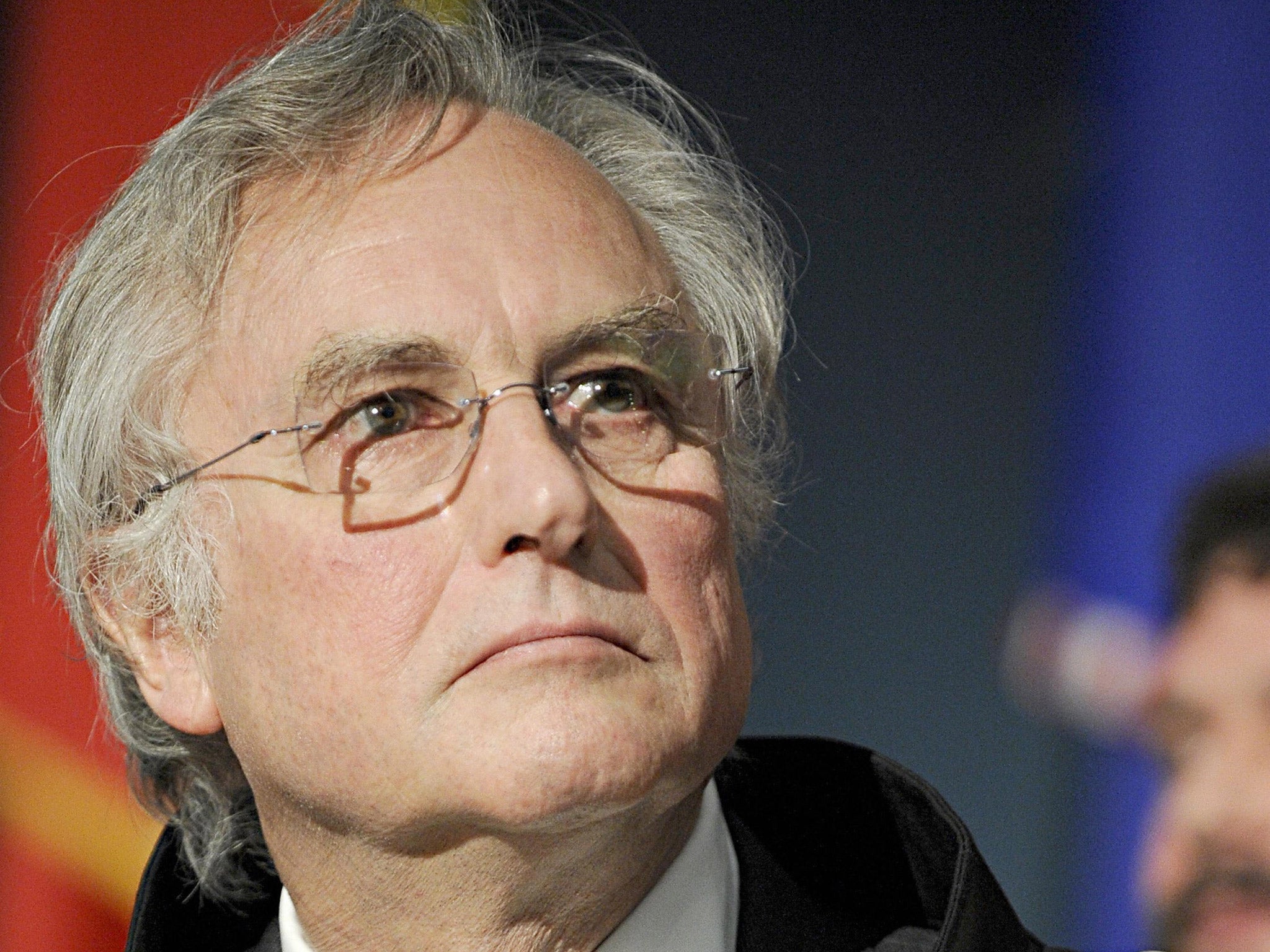Richard Dawkins on fairy tales: 'I think it's rather pernicious to inculcate into a child a view of the world which includes supernaturalism'
The evolutionary biologist was speaking at the Cheltenham Science Festival

Your support helps us to tell the story
From reproductive rights to climate change to Big Tech, The Independent is on the ground when the story is developing. Whether it's investigating the financials of Elon Musk's pro-Trump PAC or producing our latest documentary, 'The A Word', which shines a light on the American women fighting for reproductive rights, we know how important it is to parse out the facts from the messaging.
At such a critical moment in US history, we need reporters on the ground. Your donation allows us to keep sending journalists to speak to both sides of the story.
The Independent is trusted by Americans across the entire political spectrum. And unlike many other quality news outlets, we choose not to lock Americans out of our reporting and analysis with paywalls. We believe quality journalism should be available to everyone, paid for by those who can afford it.
Your support makes all the difference.Professor Richard Dawkins has questioned whether telling children fairy tales could be harmful because they “inculcate a view of the world which includes supernaturalism”.
The evolutionary biologist, a leading atheist and author of books including The Selfish Gene and The God Delusion, told an audience at the Cheltenham Science Festival that he stopped believing in religion when he was about eight after having seen through Santa Claus when he was just 21 months old.
He suggested children should be taught scientific rigour from an early age.
“Is it a good thing to go along with the fantasies of childhood, magical as they are? Or should we be fostering a spirit of scepticism?” the Daily Telegraph quotes him as saying.
“I think it's rather pernicious to inculcate into a child a view of the world which includes supernaturalism – we get enough of that anyway.
“Even fairy tales, the ones we all love, with wizards or princesses turning into frogs or whatever it was. There’s a very interesting reason why a prince could not turn into a frog – it's statistically too improbable.”
After facing somewhat of a backlash over claims that Professor Dawkins had implyed the stories themselves were harmful, he clarified his remarks on Twitter, saying that his initial raising of the question had been taken out of contest.
"It IS pernicious to inculcate supernaturalism into a child," he posted on the social networking site. "But DO fairytales do that? It's an interesting Q. The answer is probably no."
"'Hello, this is Richard Dawkins & I've no more to say on fairytales.' Turned out he wanted to talk about ethics. Startled me into agreeing," he tweeted later on.
Professor Dawkins said his mother had written down an early encounter with Santa.
“There was a man called Sam who came as Father Christmas, all 'ho ho ho'. All the children were enthralled by this. Then he left, I piped up much to the consternation of the adults, 'Sam's gone,’” he said.
His religious belief lasted a bit longer. “I think I did believe it up to the age of eight or nine, when preachers said if you really, really pray for something it can happen. Even moving mountains, I believed it could really happen,” he said. “I grew up. I put away childish things.”
He said it would be “a bit strong” to say parents who raised their children to believe in God were guilty of child abuse.
But he added: “When you tell a child to mind their Ps and Qs otherwise they'll roast in hell, then that is tantamount to child abuse.”
Professor Dawkins also talked about being sexually abused at his prep school in Salisbury. He has previously played down an incident in which a teacher “put his hand inside my shorts”.
“I got quite a bit of stick for saying that it did not have a big impact but to say that it did would be an indecency to those people whose lives have been ruined by experiences that have been much worse,” he said.
Join our commenting forum
Join thought-provoking conversations, follow other Independent readers and see their replies
Comments